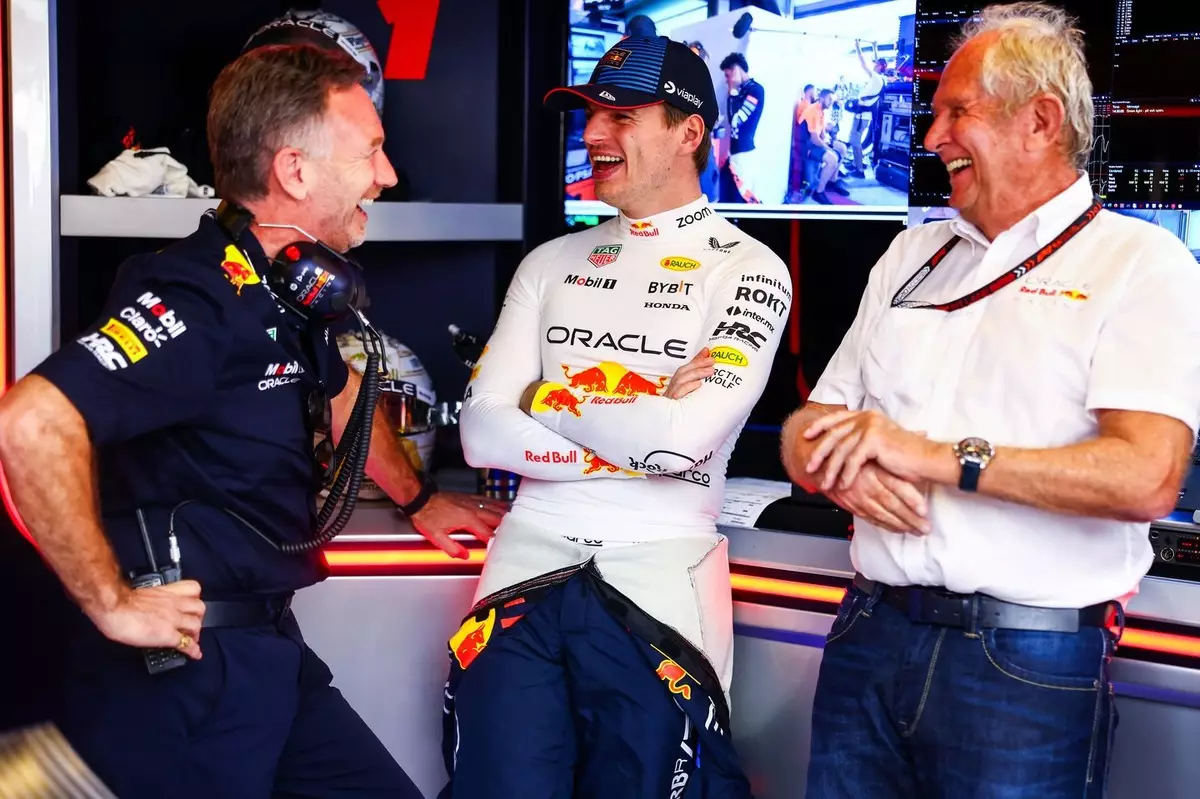Christian Horner, the principled leader of Red Bull Racing, has made it clear that Max Verstappen’s allegiance to the team remains steadfast, even in the face of persistent speculation that arose during an eventful previous season. Amidst various challenges faced by the team, including technical setbacks and rival interest, Verstappen’s dedication has not wavered. As he continues to compete on behalf of Red Bull, the questions surrounding his commitment and the stability of the team’s structure have not only captivated fans but also raised critical discussions on the nature of loyalty and ambition in the cutthroat world of Formula 1.
Verstappen’s performance in Formula 1 has made him a central figure within Red Bull, bringing four world championships to the team and solidifying his status as a premier talent in the sport. Despite the active recruitment by other teams, including a highly publicized interest from Mercedes following Lewis Hamilton’s potential departure, Horner confidently asserts that Verstappen’s future with Red Bull is secure. His existing contract runs until the end of 2028, and Horner articulates that the Dutch driver has always communicated a clear message regarding his commitment to the squad.
This unwavering dedication stems not just from personal ambition but from Verstappen’s appreciation for the team dynamics and relationships cultivated over time. Notably, Horner points to Verstappen’s enjoyment in working with trust and camaraderie: “He enjoys the people that he trusts and the people that he works with.” This bond is pivotal in a high-pressure environment like F1, where synergy and collaboration can significantly impact race outcomes.
The complexities of a Formula 1 team extend beyond mere machinery and technical prowess; they hinge upon creating an environment conducive to success. Horner noted that maintaining a competitive car is essential to keep Verstappen satisfied, suggesting that a focus on innovation and performance remains paramount. The notion that Verstappen is the envy of other team principals is not unfounded; elite drivers are indeed on every team’s wishlist. Thus, maintaining an atmosphere where top-tier talent can thrive is crucial for Red Bull as they seek to retain their prized driver.
Horner’s reflections on the seasonal turbulence faced by the team reveal how external pressures can infiltrate team dynamics. He acknowledges that moments of hardship, such as the scrutiny surrounding Red Bull and personal allegations against himself, could potentially distract from the team’s competitive goals. However, he adamantly states that once inside the garage, distractions dissipate: “As soon as you step across that red line into the garage, all the noise from the paddock you leave behind.” This ability to compartmentalize is essential in navigating the multifaceted responsibilities of managing a high-performance sports team.
While the team’s spirit seems intact, the previous season’s whispers of change within the hierarchy pointed to deeper issues. Allegations against Horner and uncertainties surrounding Helmut Marko’s position sent ripples of concern through the Red Bull camp. Mixed sentiments were voiced by figures such as Verstappen’s father, Jos, who warned of potential disarray should Horner remain in charge. These dynamics raised essential questions about leadership and stability in an organization where clear direction is vital.
After a thorough investigation cleared Horner of wrongdoing, he reflected on managing this period of uncertainty, which could easily derail team focus. He remained resolute that his role as team principal remains unchanged, highlighting the multifaceted nature of his position. Beyond leading the racing team, he functions as the CEO of three technology businesses under the Red Bull umbrella, reflecting a sophisticated operational structure that demands clear vision and execution.
As Red Bull enters the new season with heightened expectations, attention will remain fixed on Verstappen and his decision to stay. The weight of his commitment is palpable, underpinning the essential narrative of loyalty in sport. The team’s ability to maintain a competitive edge, foster an engaging team environment, and navigate internal and external pressures will shape not only their success but also the legacy of one of F1’s most dynamic pairings.
Through the lens of this unfolding story, it becomes evident that loyalty in Formula 1 is a two-way street—one that requires commitment from both driver and team to achieve greatness on and off the track.

